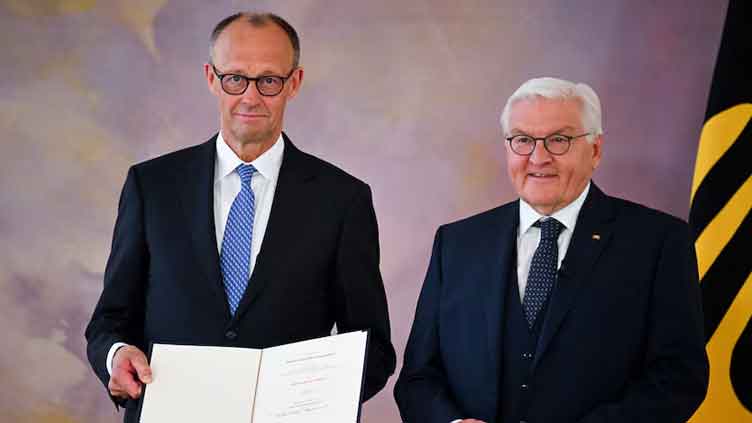Conservative Merz elected German chancellor after initial debacle

World
Conservative Merz elected German chancellor after initial debacle
BERLIN (Reuters) - German conservative leader Friedrich Merz was elected chancellor by parliament on Tuesday in a second round of voting after a humiliating and unprecedented defeat on the first attempt, getting his coalition government off to a wobbly start.
Merz, 69, who led his conservatives to a federal election victory in February and signed a coalition deal with the centre-left Social Democrats (SPD), won 325 votes, nine more than needed for an absolute majority, in the secret ballot.
He had secured just 310 votes in the first round of voting, meaning at least 18 coalition lawmakers failed to back him.
The debacle will likely heighten mistrust between the coalition partners and shows that theirs is far from being a stable union at a time when Europe needs Germany to show strong leadership, political analysts said.
"The whole of Europe looked to Berlin today in the hope that Germany would reassert itself as an anchor of stability and a pro-European powerhouse," said Jana Puglierin, head of the Berlin office of the European Council on Foreign Relations think-tank. "That hope has been dashed. With consequences way beyond our borders."
Merz takes office as Europe scrambles to agree security guarantees to offer Ukraine as part of any ceasefire deal with Russia and to negotiate a trade accord with the United States after President Donald Trump announced sweeping tariffs.
Those tariffs threaten a third year of downturn for Germany, Europe's largest economy, which has already had to grapple with the end of cheap Russian gas since Russia's full-scale invasion of Ukraine in 2022 and growing rivalry from China.
The German coalition deal has mapped out plans to revive growth such as reducing a corporate tax and lowering energy prices. It also vows strong support for Ukraine and higher military spending.
"We sincerely hope... that we’ll see more German leadership in European and transatlantic affairs," Ukrainian President Volodymyr Zelenskiy said on X. "This is especially important with the future of Europe at stake."
After Tuesday's vote, Merz headed to the nearby Bellevue Palace to be formally nominated by President Frank-Walter Steinmeier before returning to the historic Reichstag building to take the oath of office, thereby becoming Germany's 10th chancellor since the end of World War Two.
On Wednesday he makes his first trip as chancellor, to top allies France and Poland, in a bid to show that Germany is back on the world stage following November's implosion of the previous SPD-led coalition, the countdown to the February election and then months of horse-trading.
EMBARRASSING START
Merz's failure to win backing for his chancellorship at the first attempt is a first for post-war Germany.
Party insiders had said on Monday he would swiftly secure a majority despite grumbling in both coalition parties about cabinet nominations, policy compromises and a huge borrowing package pushed through the old parliament in its final days.
The two coalition parties have lost support since their already dismal performances in February - especially the CDU/CSU conservative bloc, due in part to frustration with Merz's decision - known for his abrasive and erratic style - to loosen borrowing limits, despite campaign promises of fiscal rectitude.


